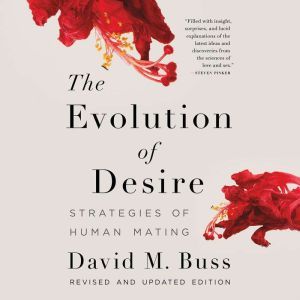

The Evolution of Desire
Strategies of Human Mating
Author: David M. Buss
Narrator: Greg Tremblay
Unabridged: 12 hr 20 min
Format: Digital Audiobook Download
Publisher: Basic Books
Published: 02/06/2018
Categories: Nonfiction, Psychology, Evolutionary Psychology, Human Sexuality, Social Science, Health & Fitness
Synopsis
If we all want love, why is there so much conflict in our most cherished relationships? To answer this question we must look into our evolutionary past, argues prominent psychologist David M. Buss. Based one of the largest studies of human mating ever undertaken, encompassing more than 10,000 people of all ages from thirty-seven cultures worldwide, The Evolution of Desire is the first work to present a unified theory of human mating behavior. Drawing on a wide range of examples of mating behavior -- from lovebugs to elephant seals, from the Yanomamö tribe of Venezuela to online dating apps -- Buss reveals what women want, what men want, and why their desires radically differ. Love has a central place in human sexual psychology, but conflict, competition, and manipulation also pervade human mating -- something we must confront in order to control our own mating destiny.
Updated to reflect the very latest scientific research on human mating, this definitive edition of this classic work of evolutionary psychology explains the powerful forces that shape our most intimate desires.



